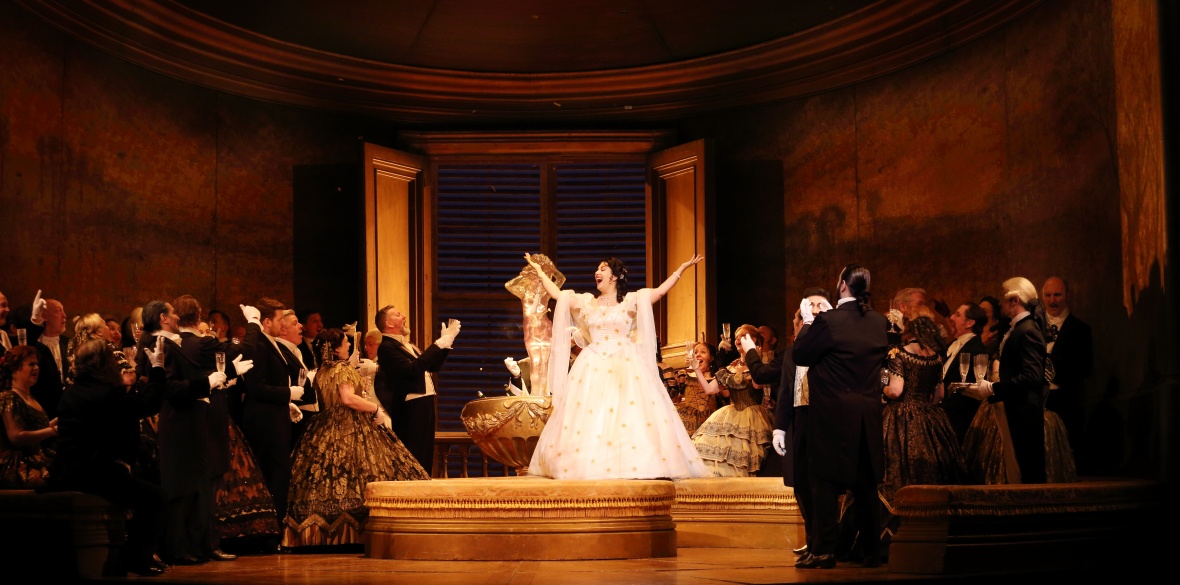This is the last article you can read this month
You can read more article this month
You can read more articles this month
Sorry your limit is up for this month
Reset on:
Please help support the Morning Star by subscribing here
RICHARD EYRE’S acclaimed production of Verdi's most popular opera returns to the Royal Opera House 25 years after its premiere in 1994.
Based on the semi-autobiographical play and novel La Dame aux camélias by Alexandra Dumas fils, La Traviata follows the tragic love affair between famed courtesan Violetta (Hrachuhi Bassenz) and admirer Alfredo (Liparit Avetisyan).
Set in 19th century Paris, vibrantly brought to life by Bob Crowley's set, the three acter sees our heroine throw a lavish party at which Alfredo declares his love for her - a declaration initially dismissed by Violetta, who cannot see room for true love in her fun-filled life.
However by the second act the two lovebirds are living together in a country house outside of Paris, but their honeymoon is destined to be doomed following a visit by Alfredo's father Giorgio Germont (Simon Keenlyside).
With Alfredo absent, Giorgio demands Violetta end their relationship, insisting that it is bringing shame on the family due to her notoriety as a high class prostitute, and she reluctantly concedes.
In a fit of jealousy and pain, Alfredo suspects that she is in love with her former lover Baron Douphol (German E Alcantara) and disgraces himself by confronting and humiliating her at a party back in Paris.
In the final act, a real feat of set design with giant venetian blinds spanning the height of the stage, Violetta is on her death bed with tuberculosis. After finally learning the real reason for her leaving him from his father, Alfredo is reunited with Violetta for one final duet before she dies in his arms.
This much revived production deserves many plaudits, not least here for a show-stealing performance by Bassenz, whose Violetta is pitch perfect from her double aria in the finale of Act I to her poignant realisation of lost dreams in the final act.
Avetisyan's Alfredo is equally strong in the famous brindisi drinking song - Libiamo ne' lieti calici ("Let's drink from the joyful cups"), although a less convincing actor; there are times in the more tragic moments where you wish he'd display more pathos.
Keenlyside is also a memorable Giorgio as he switches from the austere and stern harbinger of sorrow to the compassionate and remorseful paternal figure by the end. And nobody could fault Crowley's spectacular set, no doubt helping to ensure that they'll be many more revivals to come.










